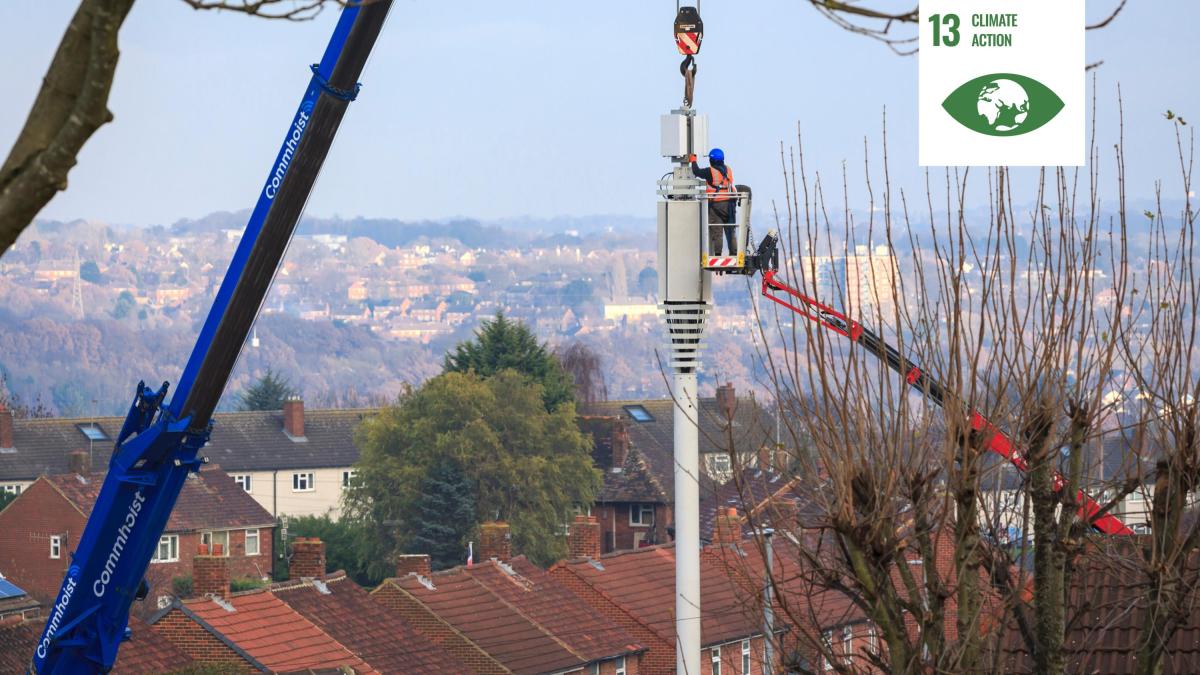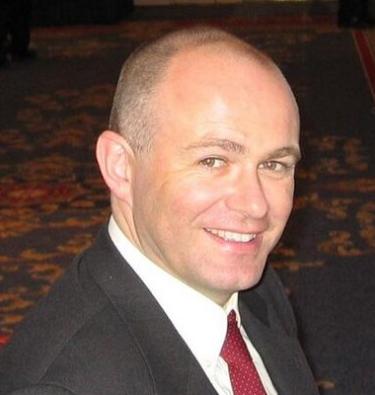
Cities have a massive role to play in climate mitigation. Worldwide, they occupy less than 3% of the earth’s surface but consume 78pc of the world’s energy and produce more than 60% of global emissions. As one of the 112 cities selected for the EU Cities Mission, Dublin is aiming to be climate neutral by 2030. However, a lack of detailed data for emissions levels in Ireland’s largest population centre has been a major blindspot for those tackling this challenge. Dublin city occupies just 1.7% of the area of Ireland, it is estimated to contribute over 9.4% of the national emissions.
Current climate monitoring technology is expensive, making investment prohibitive for many organisations. These devices also do not capture sufficient data. Edgeliot a recent DCU spin-out company led by Dr. Gary McDarby aims to tackle this issue.
The icon on this article represents contribution towards the UN Sustainable Development Goals. The Sustainable Development Goals are 17 objectives designed by the United Nations to serve as a shared blueprint for peace and prosperity for people and the planet.
Cutting edge AI firmware
Gary joined DCU through DCU Invent’s “Fusion Spin-In Programme” led by Paddy O’Boyle. Gary’s innovative concept was to combine edge AI firmware, “internet of things” connectivity and the latest advances in microprocessing. Edge AI is the implementation of artificial intelligence in an edge computing environment: this facilitates making computations close to where data is collected, rather than at a centralised computing facility or data center. This process greatly increases efficiency and brings physical infrastructure requirements, and therefore cost, down.
The project was funded through Enterprise Ireland’s Commercialisation Fund Programme. Now, the technology forms the basis of McDarby’s firm Edgeliot, which specialises in cost effective sensing technology designed to monitor climate data at low cost.
The launch of the Urban Sense project by Minister Eamon Ryan in January 2024 marked a key moment in Edgeliot’s commercial mission. As part of the Urban Sense project, this technology is being mounted on twenty mobile phone masts at various residential and commercial sites around Dublin.
Lunch box sized sensors
These lunch box sized sensors can sit on the roof of the existing rooftop masts, with minimal cost and disruption to existing infrastructure. A small radio then transmits real time data, providing the ability for detailed analysis of carbon emissions in different urban environments around the city. They will capture data on carbon dioxide and methane as well as particulate matter, nitrogen oxide and sulphur dioxide which are the main pollutants affecting air quality. The data collected will be used alongside Terrain-AI models to understand patterns in greenhouse gas emissions as they relate to weather and human activities.
Where existing technology provides an incomplete picture, the sensing technology developed by Edgeliot provides a ‘visual pulse.’ It is also significantly cheaper than existing ‘flux tower’ sensors currently used by Teagasc to measure methane emissions, which cost around €250,000 to build and deploy. The Edgeliot sensors cost just a couple of hundred euro.
Partnerships
The project has been organised by Terrain-AI, a collaboration between Teagasc and several Irish universities, including DCU. It is led by Professors Tim McCarthy and Rowan Fealy of Maynooth University, in partnership with Dr Gerald Mills of University College Dublin.
Telecoms infrastructure company Cellnex, another partner on the project, are providing access to the mobile phone mast infrastructure. The company maintains 2000 masts nationally, and over 100,000 sites across 12 countries in Europe.
The initial Urban Sense pilot will run for one year, in order to provide a clear roadmap for expanding this innovative climate monitoring project.




